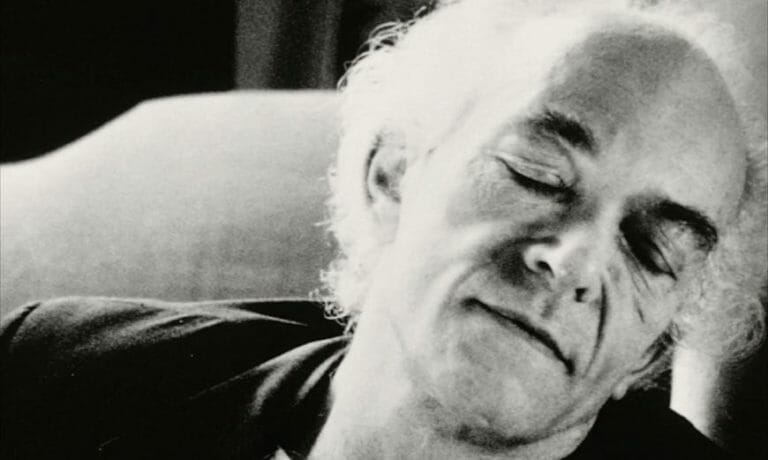By Carrie Stemke · December 23, 2014

Pi is certainly an interesting way to start a career. Darren Aronofsky’s directorial debut focuses on Max Cohen, a numbers theorist for whom the entire world is about mathematics and controlling his excruciating cluster headaches. The movie, filmed in black and white in such a way that is strangely suggestive of a convenience store security camera, follows Max in his crazed pursuit of the meaning of a 216-digit number.
I’ve been a fan of Darren Aronofsky for a long time: if you’re familiar with him, you’ll know he’s got a penchant for the strange, and if you’re not, I’d say he’s an acquired taste. And based on his body of work over the years since he made Pi – a library that includes masterpieces like The Wrestler, Requiem for a Dream, and the under-appreciated The Fountain – I’d have to say that I didn’t think Pi was his best work. Instead, I found the plotline to be rather dull. Throughout Max’s uninteresting quest to find out what this 216-digit number means, I glanced at the clock several times. A magical number that explains the stock market/the world is a bit difficult for the audience to connect with.
What is interesting about Pi is its style. The film contains some elements that are strongly reminiscent of a David Lynch movie (Mulholland Drive, Blue Velvet and Eraserhead come to mind as films ripe for comparison with Pi.) And what kept me interested in Pi was not its plotline, but Max Cohen himself. Here, Aronofsky begins a career of focusing on characters who are obsessed with some sort of perfectionist ideal, and Max Cohen is his original. Max is fascinating to watch: he’s paranoid, solitary, and almost defensively antisocial. He’s so far removed from the real world that he’s created his own: one in which everything can be explained by what makes him most comfortable – math. Max is frighteningly on the edge of insanity, and Aronofsky tells the story from his unreliable main character’s point of view, further pulling the audience into Max’s unstable mind. This film kicked off Aronofsky’s career as a mainstream Hollywood director who excels at getting into the minds of his subjects, who are nearly always wavering on the brink of sanity. And best of all, the low-budget Pi perfectly represents Max Cohen’s state of mind: psychotically paranoid, jarring, claustrophobic, and anxiety-ridden. And it is in this way, by creating a film that so wonderfully mirrors an affected mind, that Aronofsky made an impression as master with his first film.